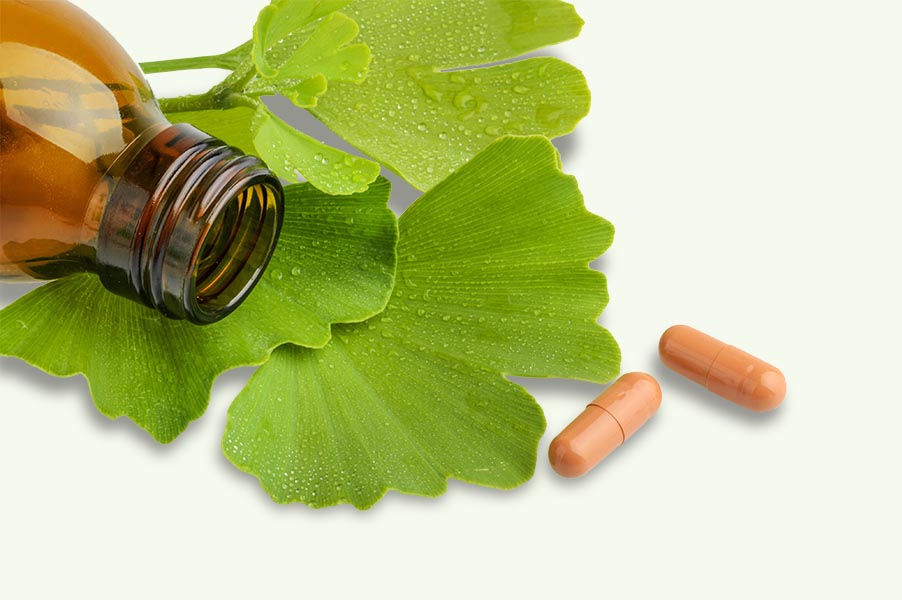Ginkgo supplements: Often adulterated and backed by weak evidence

Ginkgo biloba doesn’t prevent dementia or cognitive decline in older people, and doesn’t help boost memory in younger folks either, according to the best independent studies.
If you want to take it anyway, here’s something to consider: Chances are, the ginkgo you think you’re buying isn’t the ginkgo you get.
Many ginkgo supplements are now adulterated
“Consumers would find it disappointing that the ‘ginkgo’ in so many supplements isn’t 100 percent ginkgo,” notes Stefan Gafner, chief science officer at the American Botanical Council.
But industry insiders aren’t surprised.
In 1999, when ConsumerLab.com first started testing ginkgo supplements, there was something fishy about the ginkgo in a quarter of the 30 brands that it sampled. In its 2003 testing, seven of nine ginkgo products flunked. In 2008, it was five of seven. And this year, it was six out of 10.
[caption id="attachment_41156" align="alignnone" width="322"] Ginkgo or gink-no? There's no way for shoppers to tell.[/caption]
What’s going on?
“To reduce their costs, some manufacturers (or their ingredient suppliers) provide less ginkgo than claimed or use material that has been adulterated or ‘spiked’ with one or more compounds or extracts from other plants that can trick simple chemical tests,” notes ConsumerLab, which uses more sophisticated tests.
“This makes a product with little or no real ginkgo appear to be the real thing. In fact, it is now believed that ginkgo is among the most adulterated herbs on the market.”
(Which brands passed this year’s test? That information is available only to ConsumerLab’s subscribers.)
Others have found similar problems. In a 2012 study, seven of 18 ginkgo supplements purchased in suburban Washington, DC, or online “were clearly adulterated,” notes Gafner.1
And in a 2016 survey organized by the BBC, 33 of 35 ginkgo supplements purchased in London or online were adulterated. One contained no ginkgo at all.2
Adulterated ginkgo saves companies money
“Industry experts agree that the adulteration of ginkgo extracts is intentional,” says Gafner.
(The pro-herb, nonprofit American Botanical Council is part of a consortium that is pushing supplement makers to clean up their act.)
Real ginkgo extract is expensive. It takes roughly 50 pounds of dried leaves to make one pound of extract.
“Most of the products contain some ginkgo,” notes Gafner. But some companies add cheaper compounds—they can cost as little as one-twentieth what ginkgo costs—that not all lab tests can pick up as frauds.
“Consumers think dietary supplements are supposed to be inexpensive,“ says Gafner. “Price pressure definitely has something to do with manufacturers cutting corners. That’s unacceptable.”
The evidence for ginkgo is unimpressive
The evidence that ginkgo can protect your brain is anything but compelling.
In a 2008 study funded in part by the National Institutes of Health (NIH), researchers gave 3,069 men and women aged 75 and older 240 milligrams of ginkgo or a placebo every day. (They made sure the supplements had the right amount of ginkgo.) Over the next six years, the ginkgo takers were just as likely as the placebo takers to be diagnosed with dementia.3
And among those in the study who didn’t develop dementia, ginkgo was no better at slowing declines in memory, attention, use of language, or executive function (planning and organizing).4
Trials of ginkgo on memory, attention, and executive function in younger people have also come up empty.5
Some people with intermittent claudication—aches and cramps caused by poor circulation in the legs—claim that ginkgo relieves the pain of walking. But a Cochrane Collaboration review of 11 clinical trials found nothing much.6
FDA urged to take action
Yesterday the Center for Science in the Public Interest (CSPI), Nutrition Action's publisher, called on the Food and Drug Administration (FDA) to use its enforcement authority to seize adulterated ginkgo pills in the marketplace.
CSPI also said that the FDA should consider warnings on packages of ginkgo.The NIH cautions that ginkgo can cause bleeding in pregnant women, the elderly, and other people with a known risk of bleeding.
References
2Journal of Herbal Medicine 6: 79, 2016.
5Hum. Psychopharmacol. 27: 527, 2012.
6Cochrane Database Syst. Rev. 6: CD006888, 2013.
The information in this post first appeared in Nutrition Action Healthletter in May 2017.
Photo (ginkgo leaf): azure/stock.adobe.com.
Find this article interesting and useful?
Nutrition Action Healthletter subscribers regularly get science-based advice about diet and diabetes, heart disease, cancer, osteoarthritis, and other chronic diseases; delicious recipes; and detailed analyses of the healthy and unhealthy foods in supermarkets and restaurants. If you don’t already subscribe to the world’s most popular nutrition newsletter, click here to join hundreds of thousands of fellow health-minded consumers.
Have a comment, question, or idea?
Send us an email at comments@nutritionaction.com. While we can’t respond to every email, we’ll be sure to read your message.
Tags
Topics


